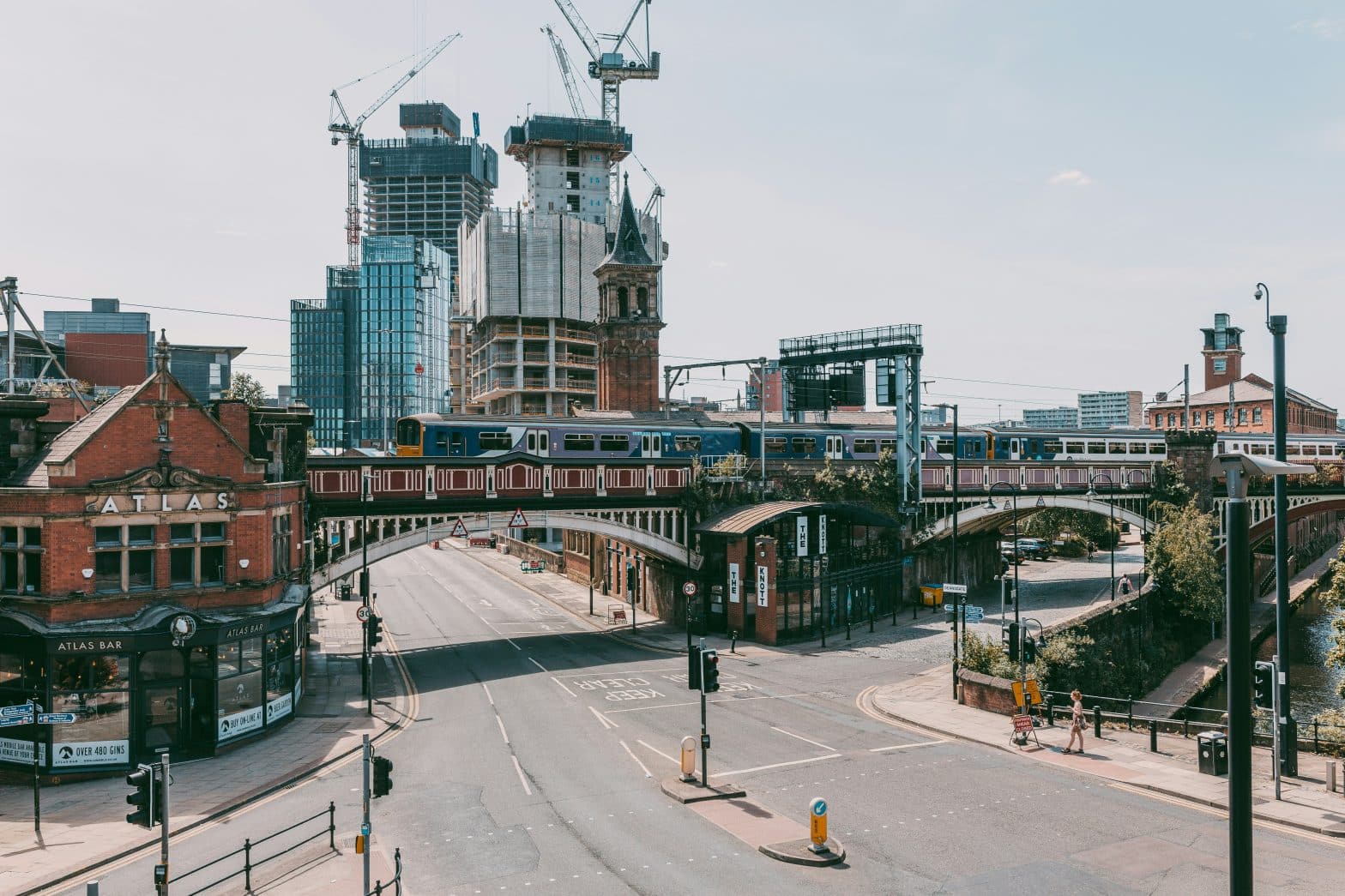Manchester is not just a city known for its football teams! It is also a destination that attracts more and more expatriates every year.
If you are looking to find out more, it means you are seriously considering a relocation to Manchester. And while London may spring to mind when you think of the United Kingdom, Manchester’s quality of life is well worth a look.
But moving is not something to be done on a whim and requires a minimum of preparation. Which neighbourhood should you live in and how much will it cost? What is the job market like? What about the practicalities of moving there?
Don’t panic, this guide tells you everything you need to know about life in Manchester!
Living in Manchester: pros and cons
Pros
- One of the country’s largest economic hubs, with a dynamic job market
- The cost of living is on average 30% cheaper than in London
- An extraordinary music and cultural scene, with many (really many) artistic events throughout the year
- Ideally located for day trips to Liverpool, Leeds, etc.
- Just 20 km from the Peak District (England’s most famous mountainous region)
Cons
- The weather is often grey… (locals refer to it as “drizzle o’clock”)
- Some outlying neighbourhoods are less developed
- The English spoken by Manchester natives has a distinct accent that can be difficult to understand, especially for those who are not very comfortable with English
Obtaining a post-Brexit visa to settle in Manchester
Since the United Kingdom left the European Union, citizens from both within and outside the EU must obtain a visa to enter the country, as well as a long-stay permit to settle there. The country offers several types of visas depending on your situation, including:
- Worker visa: for skilled workers with a job offer from a UK-based company
- Health and Care visa: for healthcare professionals
- Global Talent visa: for people recognised as globally talented in the fields of technology, science, sport or culture
- Startup / Innovator visa: for entrepreneurs who wish to set up a business or invest in a structure in the United Kingdom
- Student visa: for students wishing to continue their studies in the United Kingdom for more than six months
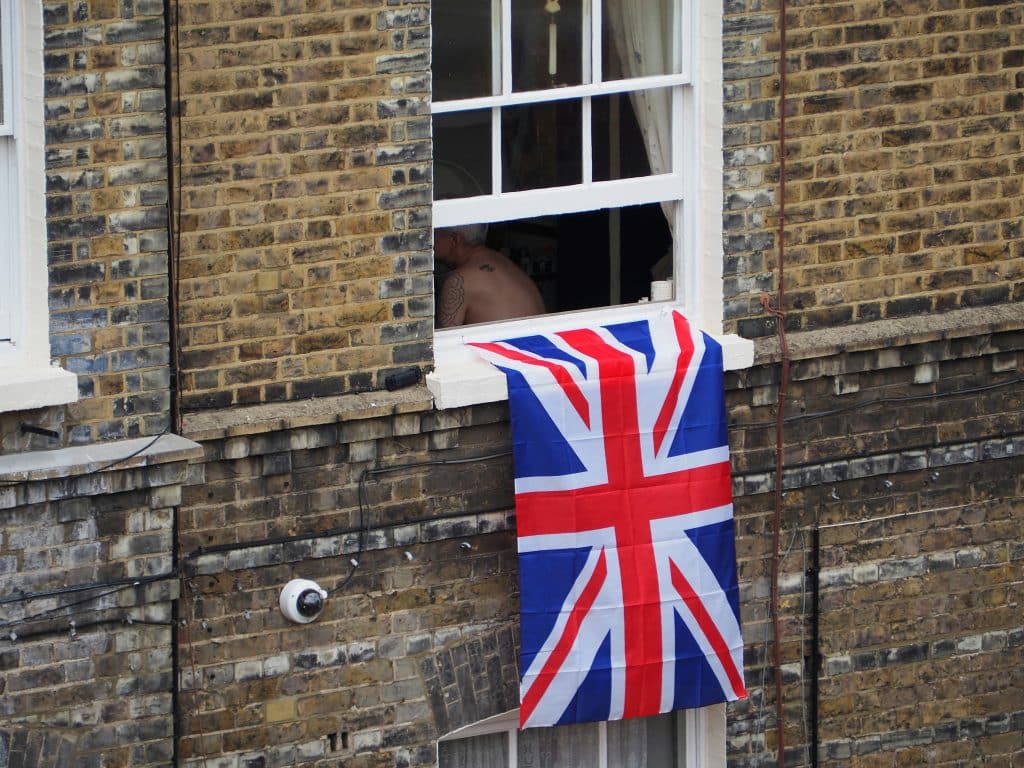
All residence permits that allow you to settle in Manchester or another city in the country are listed on the official government website: https://www.gov.uk/browse/visas-immigration
Accommodation in Manchester
Which neighbourhood should you choose?
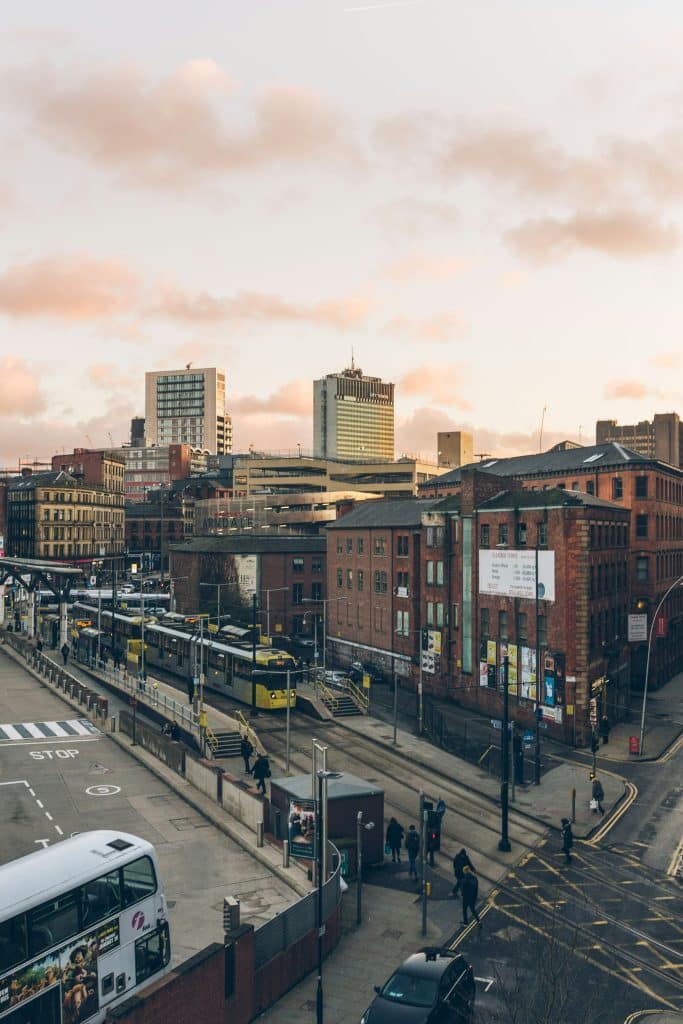
- The Northern Quarter is one of the city’s best-known neighbourhoods. Residents enjoy its hipster vibe and numerous shops and bars.
- Ancoats, or New Islington to the south, is a residential neighbourhood renowned for its stylish homes, including lofts, studios and apartments. It also has many high-end restaurants.
- Castlefield is perfect for those looking for a quieter, more family-friendly environment. The neighbourhood is characterised by its many canals, which give it a unique atmosphere compared to the rest of the city.
- The Millennium Quarter is one of the most sought-after (and also most expensive) areas of Manchester. It is home to modern and historic buildings, as well as high-end shops.
- Many expats also choose to settle in Salford, a town located about 3 km from Manchester. Less populated, it offers a more family-friendly living environment.
- The same goes for the town of Didsbury, less than 7 km from Manchester. It is known for its many historical buildings and pleasant green spaces.
How much should you expect to pay for accommodation?
Accommodation is the biggest expense when living in Manchester, but prices vary depending on the type of accommodation and location.
Here are the average prices in June 2025:
- Studio in the city centre: €1,390/month
- Studio outside the city centre: €1,100/month
- Three-bedroom flat in the city centre: €2,300/month
- Three-bedroom flat outside the city centre: €1,800/month
The cost of living in Manchester
According to the latest figures from Numbeo, Manchester is the sixth most expensive city in England, behind London, Cambridge and Edinburgh.
How much should you budget for living there?
To live in Manchester, a single person needs an average budget of €2,280 per month, while a family of four should budget around €5,600 per month.

These estimates include the main areas of expenditure: rent, groceries, transport, healthcare, education and leisure.
Would you like to find out more? Check out our comprehensive guide to the cost of living in the United Kingdom.
How much do you need to earn to live comfortably in Manchester?
The average gross annual salary in Manchester is £46,000 (approximately €54,000), which equates to a gross monthly salary of £3,800 (€4,460).
This average income allows you to live comfortably in the city, although this can vary depending on the neighbourhood you live in and your spending habits.
Should you move to Manchester or London?
That is the question! Many expats hesitate between moving to London or Manchester. The main difference between these two cities is the cost of living. London is about 30% more expensive and is one of the most expensive cities in the world.
The job market is also much more saturated, making competition for jobs tougher. But once you are in a job, the capital offers a dynamic, cosmopolitan atmosphere and exceptional cultural heritage.
If you are really torn between these two cities, check out our guide to expatriation in London. You can compare all aspects of life in these two major English cities.
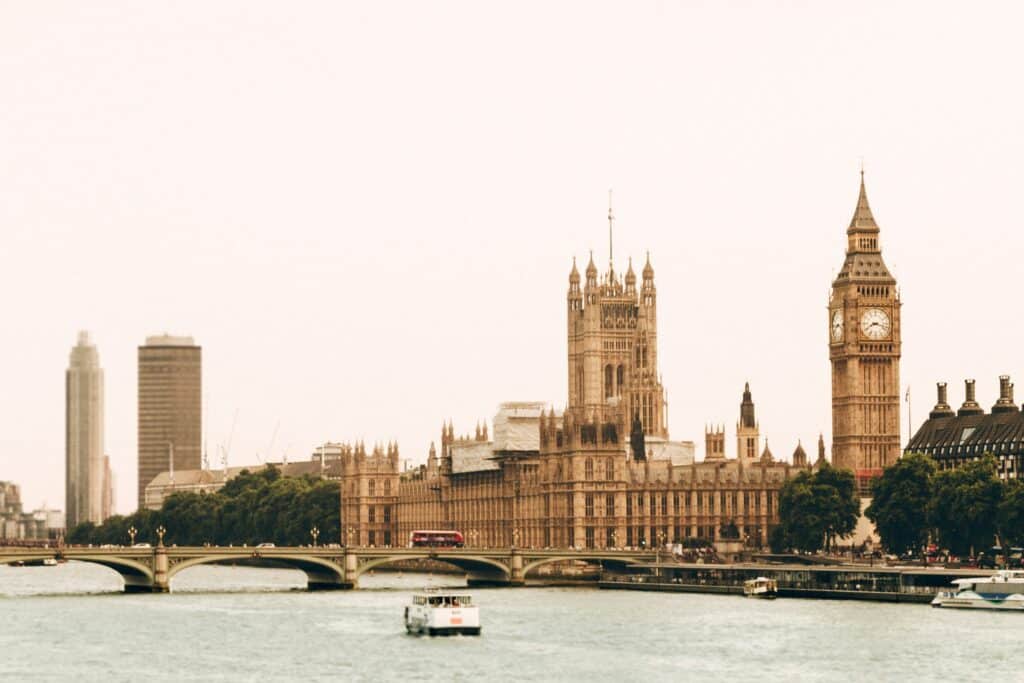
Getting around Manchester as an expat
There are several ways to get around Manchester, including public transport such as the Metrolink (tram) and buses. These are part of the Bee Network, Greater Manchester’s transport network.
To make your journeys easier, particularly when it comes to planning and paying for your travel, you can download their official app: the Bee Network App.
You can also get around by taxi or bicycle.
Of course, it is also possible to travel by car. If you are a European citizen, your driving licence is valid in the UK; you do not need an international driving licence.
However, please note that driving is on the left, not on the right as in most European countries. So take the time to get used to it!
Living in Manchester with your family
If you are planning to live in the United Kingdom with your family, Manchester is a great place to do so.
The city and its surroundings are home to over a hundred primary schools and numerous public and private educational establishments renowned for the quality of their education. These include:
- Withington Girls’ School
- Manchester Grammar School
- St Damian’s RC Science College, in Ashton-under-Lyne
The city is also home to several prestigious universities, including the famous University of Manchester, ranked 27th best in the world in 2021.
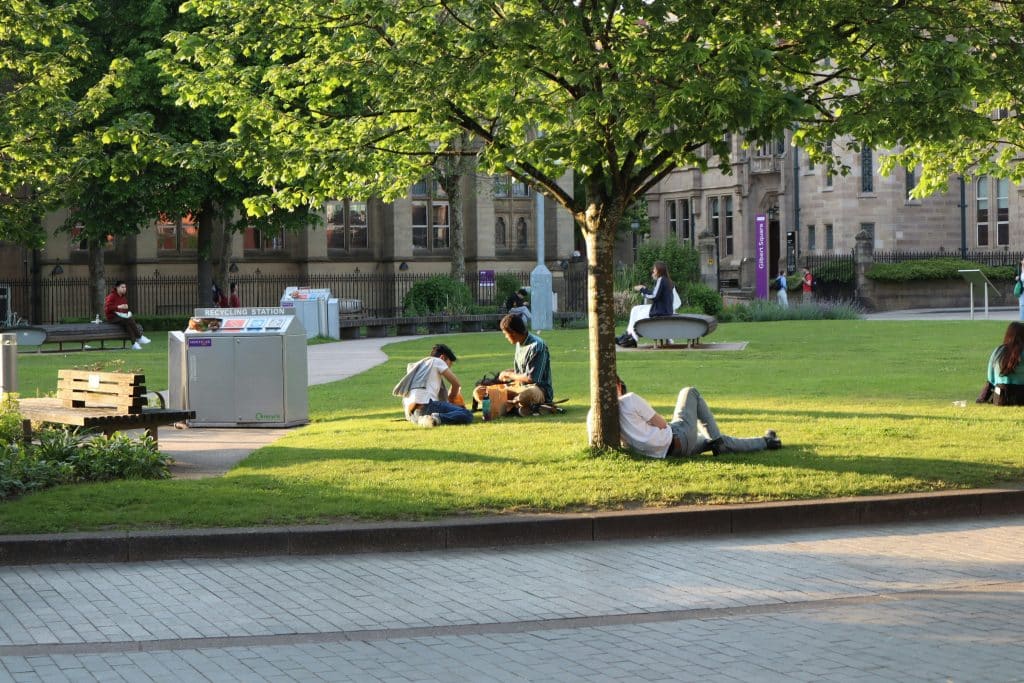
Manchester also offers a wide range of family activities. Here are a few ideas:
- Explore the Peak District
- Visit the many museums (Manchester Museum, People’s History Museum, Museum of Science and Industry, etc.)
- Attend a football match (of course!)

Working in Manchester
If you have obtained a work visa, you can work in Manchester without any problems.
The unemployment rate in the country is currently 4.6%, but the city’s job market offers many opportunities for expats. Some sectors are recruiting more than others, including:
- Services
- Finance
- New technologies
- Communication
Unsurprisingly, having a good level of English is ideal, and sometimes even essential for getting a job!
Taxes are applied on a progressive scale. The average rate is 20%, and above £50,270 in annual income, the tax rate rises to 40%.
The healthcare system in Manchester
The British healthcare system is based in part on a universal public system called the NHS (National Health Service).
This is funded by taxes paid by all residents and guarantees free (or partially free) healthcare for everyone living in the country.

Both public and private medical facilities provide high-quality care in modern facilities. Among the best facilities in the city are:
- Manchester Royal Infirmary
- Spire Manchester Hospital
- Wythenshawe Hospital
One of the only drawbacks of the healthcare system in Manchester, as in England in general, is the often long, even very long, waiting times for access to care. Some types of care are also not covered. This is why taking out private health insurance is very common.
International health insurance for you and your family
To compensate for the shortcomings of the British universal healthcare system, many expatriates choose to take out international private health insurance.
At Foyer Global Health, we specialise in health insurance for expatriates.
In concrete terms, we offer tailor-made insurance that allows you to benefit from:
- Coverage valid throughout England, the United Kingdom, your country of origin and internationally
- Rapid access to care at the facility of your choice
- Repatriation in case of emergency
Because expatriation often comes with challenges and stress, our coverage also includes mental health support and a fitness programme. Our priority? Looking after your physical and mental health!
